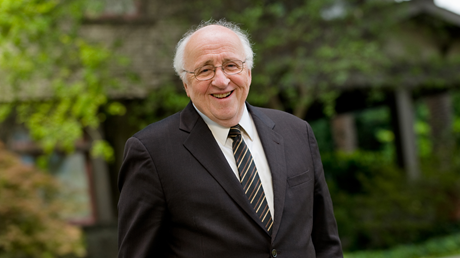
Will you help encourage and connect the church?
Give NowWill you help encourage and connect the church?
Give NowChristianity Today (CT) and Brotherhood Mutual Insurance Company recently released their findings of a joint research project—Youth Ministry in America. The study, based on responses from more than 800 youth ministry leaders across the United States, highlights key findings on the demographics, activities, and practices of youth ministries.
Christianity Today led the charge on this project, crafting questions, editing the survey, and pushing the survey out through newsletters, social media, and other means. We had a month to get 1,000 responses, and out of the responses we received, 800 were valuable and accurate enough to use for analysis. In conjunction with Solver Solutions, we reviewed the responses and highlighted the most surprising and important findings. We then released our findings in the Youth Ministry in America Executive Report.
There was good news on the documentation front. More than 66% of the respondents say that their youth ministry documents who participates in youth activities. However, there was an interesting discrepancy between senior pastors and youth pastors over this question. Senior pastors are more likely to say no to this question (39%), while youth pastors are more likely to say yes to this question (77%), which begs a bigger question—how much do senior pastors know about what's happening in youth ministry at their church?
In light of this, 43% of senior pastors say their youth pastors/ministers meet with church leadership occasionally as needed regarding youth ministry issues. 47% percent of other pastoral staff member say their youth pastors/ministers meet with church leadership once a week regarding youth ministry issues.
Training and abuse awareness and reporting results were a bit grimmer. The majority of youth pastors/ministers say their church provides training on written policies and procedures (54%), but only one-third of youth pastors/ministers (37%) and youth workers (32%) say their church provides training on child abuse awareness and reporting. More than three in ten respondents say they don't receive any training in this area. Small churches (46%) are more likely than all others to say they do not provide training for their youth pastor.
Communication emerged as a key area of vulnerability for churches. Adult-student texting is a particular concern. Six in ten youth pastors report that they communicate with individual students a few times a week or more, but only three in ten have a written policy governing such communications.
In a world where student-adult texting has become dangerous territory for lawsuits, this lack of policy in small churches could potentially lead to their ruin. Youth leaders (38%) were more likely than all other respondents to say they communicate weekly with individual members.
"When youth ministry is done well, students are engaged and move closer to Christ and each other," says Marian Liautaud, editor of resources at Church Law and Tax for CT. "But often youth ministries expose themselves to increased risks. Our hope is that the Youth Ministry in America findings will help churches establish solid boundaries and best practices so they can serve teens in the church effectively and safely."
"This research gives us a clearer picture of youth ministries in America," says Mitzi Thomas, vice president of marketing at Brotherhood Mutual. "It gives us concrete ideas for how we can come alongside ministries with tools and resources to help them reach more young people."
After the survey was complete, I (Ashley Moore) was able to sit down with six different youth pastor and leaders for a roundtable interview. I asked them questions about preventing injuries, the policies their youth groups have set in place to protect the leaders and the students, and the challenges as they try to balance safety and boundaries with ministry and life-change.
Wes Trevor, Colorado youth pastor, said this of our findings on the lack of communication policies in youth ministries: "It doesn't take a conviction to end a career, it takes an accusation. Even if there's a whiff of impropriety, you're done. You will never work in youth ministry at all, because you didn't guard your boundaries in this area well enough. I have three friends who didn't necessarily do anything wrong, but they were in the wrong place at the wrong time. And they'll never practice youth ministry again. You have to have policies set in place, and you have to follow them."
Sobering words, yet so important for youth ministries across the country to keep in mind as they plan out their ministry policies.
This research is important for a lot of reasons—but the greatest hope Church Law and Tax has for this information is that it will equip churches with wiser ways to minister to youth. Careers shouldn't be cut short by misconduct, or even by unwise decision made with good intentions. Keeping students safe and healthy while involved in youth ministry is at the heart of Church Law and Tax's mission. We hope your church can benefit from our findings!
Ashley Moore is assistant editor of Church Law & Tax








